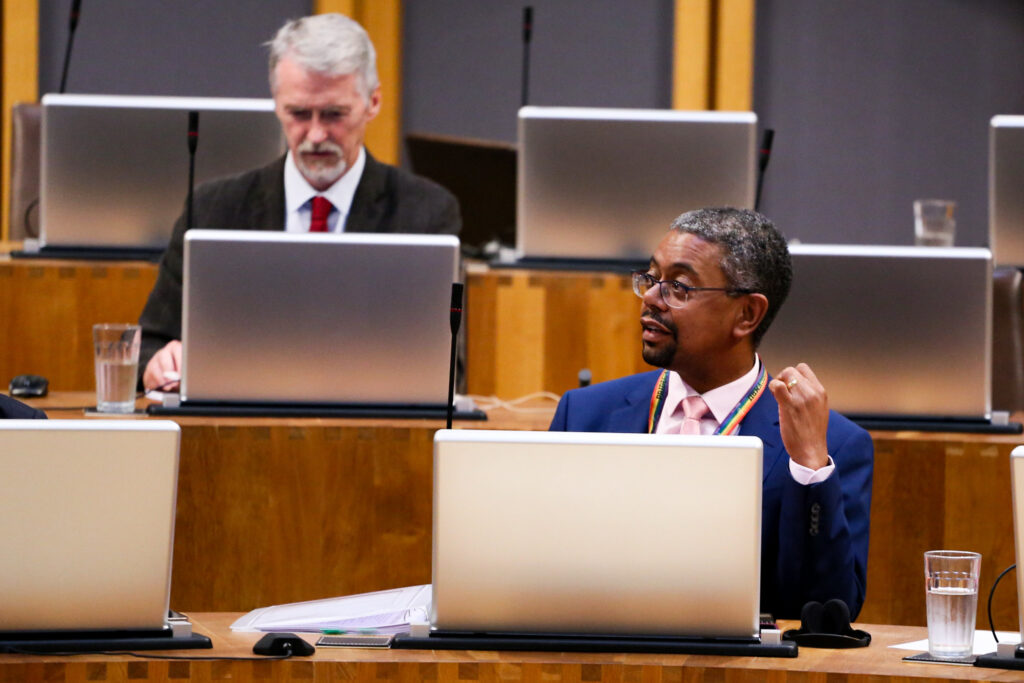Geraint Talfan Davies runs his rule over the newly published Digital Economy Bill and finds no provision for a Welsh ITV licence.
One thing that many may have missed in the Westminster Government’s Digital Economy Bill, is that, unlike Scotland, Wales is not to be guaranteed a Channel 3 (ITV) licence area of its own.
The Digital Economy Bill, published last week, states that when defining areas during the renewal of Channel 3 licences, the areas “must at all times include at least one area that comprises or falls entirely within Scotland”. It also gives Ofcom the option of creating a licence for the whole of England. There is no parallel provision for Wales, even though Ofcom itself suggested the idea in its own review of public service broadcasting.
Scotland currently has two licence areas. In the past they were known as the Scottish Television and Grampian areas. The two licences continue to exist, but are now both run by one company, STV.
Broadcasting in Wales has constantly been dogged by this link between Wales and the West of England. It began in radio, largely because of the demands of transmission engineers, before campaigners forced a separation. It was then copied in television. ITV in Wales began in 1958 with TWW (Television Wales and the West) which, in the 1967 round of franchise renewals lost out to Harlech Television, later known as HTV, and its programme offshoots, HTV Wales and HTV West. There are even echoes of it in the existence of digital radio multiplexes that bridge the Severn.
Ever since HTV was subsumed into the one ITV company that now covers the whole of England and Wales, people had thought that ITV regional licences ceased to matter. Many had begun to wonder whether ITV had a licence in perpetuity.
But the Digital Economy Bill reminds us that that is not so, and that Channel 3 licences are due for renewal – in 2014. But isn’t this academic? Who could envisage a separate ITV company for Wales any more? Perhaps. But the future is unpredictable. It is possible that Channel 3 licences might not be renewed, or that, at some point, ITV might choose to drop all its public service obligations and become a fully commercial broadcaster. What would happen to that spectrum?
Moreover, the Bill takes into account the possibility that the continued decline of ITV is not inevitable. Indeed, its fortunes may revive. The Bill gives Ministers greater flexibility to respond to market changes, by allowing them to alter the conditions that Ofcom must impose on Channel 3 and Channel 5 licensees and to change things back at a later date.
It is at least plausible that circumstances will arise when Wales would need to state its case in its own terms and need all the leverage it can muster. A discreet licence for Wales might, at the very least, help. It would have, as the legislators say, a declaratory effect.
Of course, a discreet Welsh licence could be created by default – by creating a licence for the whole of England. It could also happen under Section 216A of the Bill, but it would give the existing licence holder, ITV plc, a veto. Section 216A insists that, Scotland apart, the area for a renewed licence “must include all or part of the area to which the licence being renewed currently relates”. It may also include all or part of another area “if the holder of the licence for the other area gives (and does not withdraw) consent before the determination is made”.
So Wales’s fate will be decided by a market stitch-up rather than an act of public policy. Now that is something for Welsh legislators to get their teeth into.





Comments are closed.